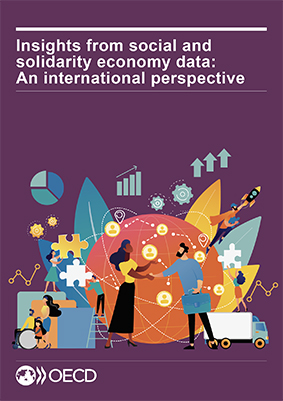The Organisation for Economic Co-operation and Development (OECD) has published a working paper compiling fact sheets on the Social and Solidarity Economy (SSE) from 34 countries worldwide, including the 27 member states of the European Union. The document is the result of the OECD Global Action for the “Promotion of Social and Solidarity Economy Ecosystems,” which concluded in 2023.
Under the title “Insights from social and solidarity economy data – An international perspective,” the document, prepared by Melis Aslan and Julie Rijpens, policy analysts at the OECD’s CFE, compiles national fact sheets on the social and solidarity economy from Brazil, Canada, the 27 EU member states, India, Korea, Mexico, the United Kingdom, and the United States.
For this work, information was collected on official definitions, the number and size of entities, employment patterns, sectors of activity, their economic contribution, and legal frameworks.
Unequal data from the 34 participating countries
Among the most relevant findings of the study is that the SSE has an official definition in only a few countries, including Belgium, Brazil, Bulgaria, Canada, France, Greece, Italy, Korea, Luxembourg, Mexico, Poland, Portugal, Romania, Slovakia, and Spain. In all these countries, there are national or regional laws regulating the SSE.
On the other hand, although data by sector of activity varies between countries, social services account for the highest proportion of SSE employment in many of them, followed by health, education, culture, communication, and leisure services.
Another notable figure relates to the proportion of women employed in the SSE. In Canada, for example, the percentage of women employed in nonprofit institutions was 70.3% in 2021, while their share in total employment was 47.5%. In Belgium, women represented 73.8% of employment in the social economy in 2020, compared to 49.8% overall, while in Mexico, they accounted for only 19.2% in 2018, a figure that the authors relate to the large representation of agricultural cooperatives in Mexico’s SSE data.
An economy for the future
In its study, the OECD highlights that the social and solidarity economy is gaining ground in public policies at provincial, national, and international levels. However, despite growing interest, available data on the SSE remains limited.







